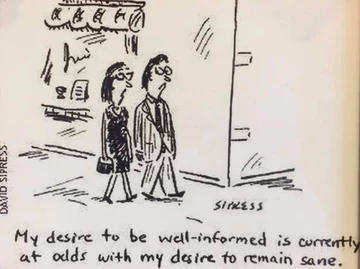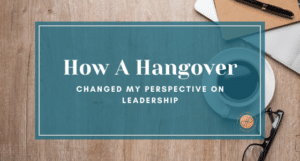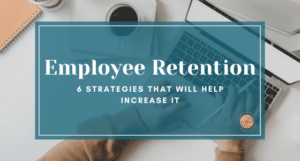
Actually, I quit smoking years ago. It’s more like I picked the wrong week to wade into the waters of social media. But here I am awash in a sea of anger, fear, frustration, and distraction. All normal feelings at a time like this.
Many of us are trying to figure out how to cope with the anger, negativity, and craziness of the world we find ourselves in. I believe it is possible to both stay well informed AND remain sane. And it’s critical now more than ever. Whichever side of the cultural divide you’re on, we’re in a fight for our values and our country. The struggle will be long and challenging. We can’t afford to check out in the interest of remaining sane or to burn ourselves out to the point we’re not able to show up for the people around us and the movement that is growing.
Here are a few tips for managing to both stay sane and #resist from my work on emotional intelligence and coaching:
MINDFULNESS
Now is a great time to take up meditation, yoga, dance, Nia (a blatant and well deserved plug for a friend of mine who teaches it here in DC). Whatever will get you out of your head and into the moment, into your body. At times like this we need to be able to step back from the voice in our head telling us what’s happening is the worst thing in the world. We need to be able to take a break from that worry, fear, anger and anxiety, and breathe. Without it, we’ll drown under the onslaught. And being able to be present, to notice and accept what’s happening inside us, is critical to working with our emotions and ensuring our actions are effective and aligned with our goals, values, and higher purpose.
EMBRACE YOUR EMOTIONS
This is also a great time to start building new emotional muscles. Anger, fear, sadness, helplessness, hopelessness, resentment, and grief are all difficult emotions. It sucks feeling them. The discomfort these emotions cause can become all-consuming and trigger our fight, flight, or freeze response. We lash out on social media or at a friend, run away into our next distraction (be it food, drink, exercise, TV, social media, etc.), or shut down and check out (basically removing or avoiding the things that trigger those feelings). That can limit our relationships and outlets. And we end up anxious, ever vigilant to avoid the things that might trigger us.
Another common response is to try to ignore uncomfortable emotions. “Oh, I shouldn’t feel that way, I should take the high road and rise above those emotions.” Then we call our ability ignore and paper over our emotions “emotional intelligence.” To be fair that is a good ability to have and is PART of emotional intelligence. But it’s only triage. When we set aside our emotions they don’t go away. They are there for a reason and they have information for us. It takes a lot of energy to keep them at bay because they’re fighting to be felt and heard.
Instead of ignoring your emotions or letting them drive your actions, try honoring them. Find time to be present and feel your emotions. Build the capacity to tolerate anger, fear, sadness, and their permutations without needing to make them go away. When you do, you will find that your emotions can guide you.
Anger is there to tell you something you care about is being threatened. Sadness often indicates something important has been lost. Before you react instinctively (remember fight, flight or freeze) take time to get present and get curious. Tune in to what’s really being threatened? Is it real or imagined? What’s been lost and what was important about it to you? Once you’ve listened to your emotions and have more clarity, respond with strength and courage.
CONNECT
Part of the problem with our public discourse today is that we’re too often fighting against something – or worse, someone (be it an individual or group) instead of fighting for something that’s important to us. Fighting against is exhausting and for many of us it feels at odds with who we are and what’s important to us. And yet events do demand a response, so we fight back. This is a great time for each of us individually get clear about our values and what’s really important to us.
Our values provide an internal compass. They help us decide when to say yes and no. We all have limited bandwidth and there is much to do. If you want to #resist and don’t know where to start, consult your values and focus on one or two things that are really important to you. You will have more energy working on something you are passionate about. You may also have values around friends or family or exercise or spirituality. Don’t forget to honor those values too. They are part of keeping yourself healthy for those around you and what’s important to you.
Values can also help us identify why we’re feeling what we’re feeling. When we’re angry or stressed or resentful, it is often because we aren’t living by our values, we’re out of alignment, or someone else is doing something that offends or compromises one of our values.
Are you clear about your core 3-5 values? Values are personal. You and I could both have a value of responsibility but what that means to you might be very different than what it means to me. it’s important to be clear and connected with your values, not a generic list of values. If you don’t know how to clarify your values, working with a coach is a great place to start and uncovering them should only take a few sessions. I’m not a fan of online assessments. While they can be helpful to get you started, they tend to be too generic.
TAKE CARE OF YOURSELF!
Okay, this is trite – and it’s critically important. Drink more water, eat better, get enough sleep, find time to do things you love (and honor your values). I’m not going to belabor this. I’ll likely post another entry about the profound impact self-care has had in my life and relationships.
Here’s why I’m including it here. At times like this, it can be easy to slip into despair (even if only for a short time), or to become consumed or stuck, or to treat people around us badly when we’re stressed or tired.
At the end of the day, to quote John Lennon, “all you need is love.” Self-care is an act of love – toward yourself, the people around you, and whatever god you happen to believe in (or not). You are the only person who can take care of you. Nobody else can do it for you. And when you neglect taking care of yourself, the people around you will either worry about you and/or want to try to take care of you – both losing propositions. Don’t put them in that position. Drink more water, eat better, get more sleep, exercise. You will have more love, laughter and connection in your life. And will have more strength and resilience for the times ahead.
This is a great time in history for more of us to wake up and start living authentic, connected lives! Thanks Donald for the wakeup call!
And if you’re interested in learning more about coaching and my work in emotional intelligence, please drop me a line.
Cartoon | David Sipress in the New Yorker
#resist #resistance #resist #resistance #coaching #emotion #mindfulness




